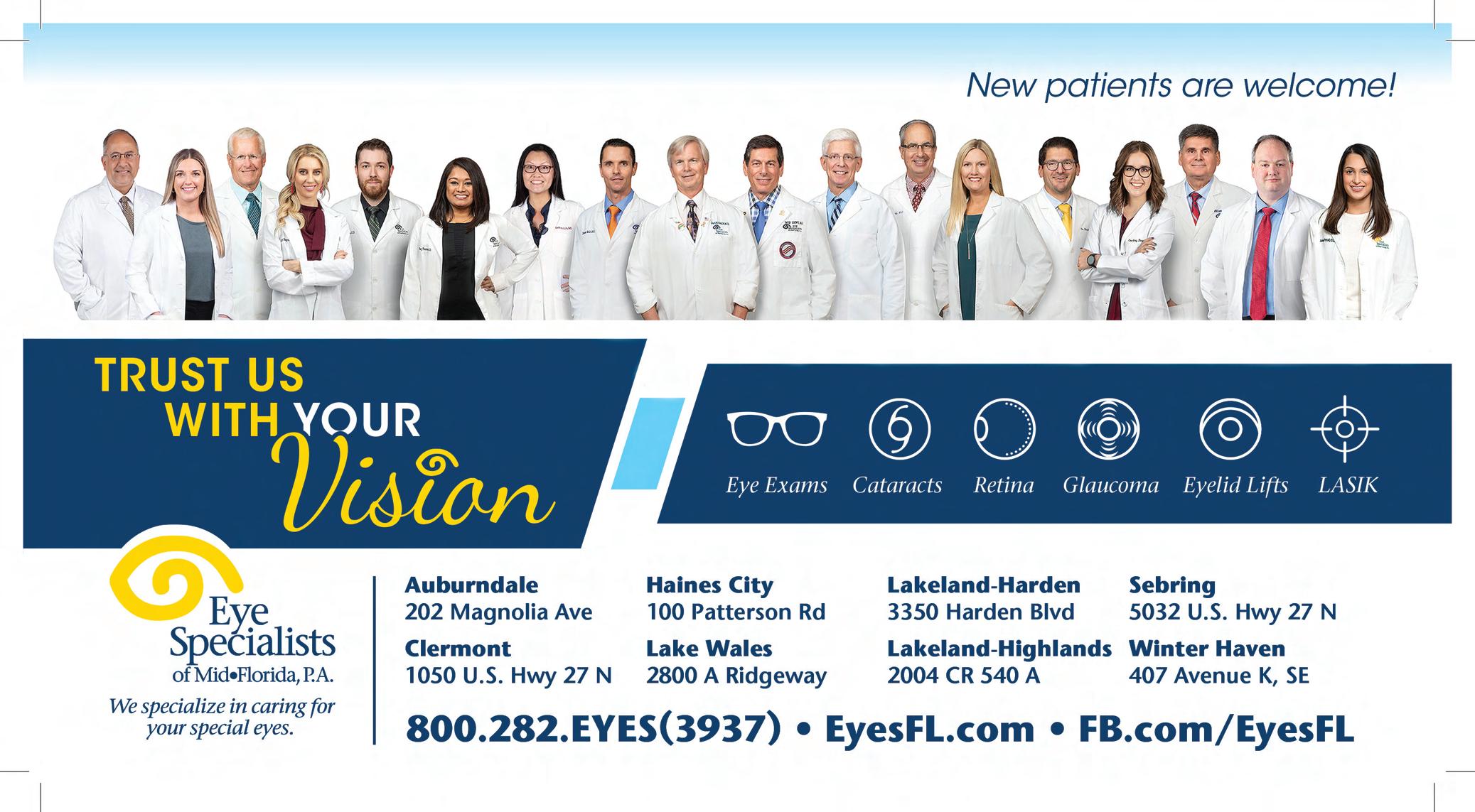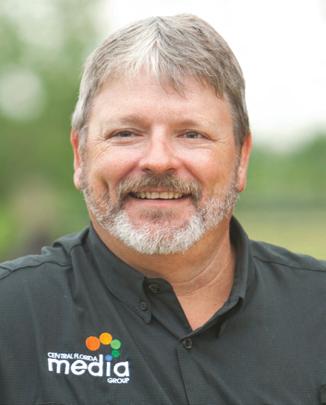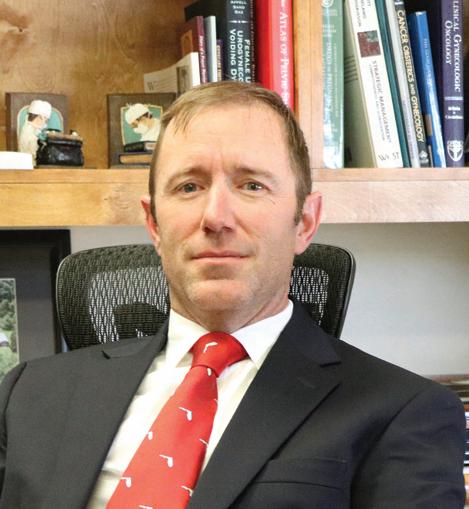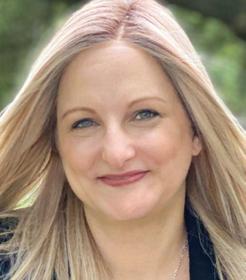12 | issue 12 | march 2023
tude of excited Jollibee patrons waiting to get their hands on their Jollibee favorites, but also first-timers waiting to have their own Jollibee experience," said Jose Miñana, Jollibee Foods Corporation's Group President for North America. "There's no greater joy for us than serving the needs and tastes of Jollibee fans in the community. At Jollibee, we aim to bring families together for happy moments over great tasting food with superior value, served with warm and friendly service –our own brand of joy." The brand has become a symbol of nostalgia and warm childhood memories for many overseas Filipinos in the U.S. To many, Jollibee is the go-to restaurant of Filipinos for both special

get to try Jollibee's signature menu items such as the world famous Chickenjoy. This dish is delicately breaded to be crispylicious on the outside and juicylicious inside. The well-loved Jolly Spaghetti is a favorite of both kids and kids-at-heart because of its signature sweetstyle sauce, loaded with chunky slices of savory ham, ground meat, and hotdog. Other classic menufavorites include the juicy and cheesy Jolly Hotdog, and the Peach Mango Pie, which is made with real Philippine sweet mangoes and a flaky golden brown crust.
Pets Your Health EDITION

THE ENDORSED PUBLICATION OF THE POLK COUNTY MEDICAL ASSOCIATION

SCIENTIFICALLY
Colonoscopy Isn’t the Only Detection Option


CentralFloridaHealthNews.com ENROLL PAGE 12
PRSRT STD US POSTAGE PAID WEST PALM BEACH,FL PERMIT NO. 4595 largest Asian restaurant company, is now open in Jacksonville. This
36th store in the US, as well
volume
is the
as
See JOLLIBEE
NEW LEASH ON LIFE Service Dog Gives FSC Grad
PROVEN Learn How Pets Boost Mental, Physical Health POP QUIZ! Test and Share Your Knowledge of MS
New Independence HEALTHY COOK Sharing Is Caring, If It’s Done Safely COLON CANCER
Meet Your Providers…



K.S. Chandrasekhar, MD, FCC
…established his clinic over 20 years ago. He is well known in the community and trusted for his accurate diagnosis and compassionate care.
• Board certified in Cardiovascular Disease and Internal Medicine

• Executive Director the Heart Function Clinic, Low Risk Chest Pain Center and the Cardiac Rehabilitation Program for BayCare Winter Haven Hospital



• President of Medical Staff for BayCare Winter Haven Hospital
• Chairman of Cardiology for Lake Wales Medical Center
• Clinical Associate Professor, FSU College of Medicine
Ritu Aparajita, MD, RPVI
A Vascular and Endovascular Surgeon who earned her MBBS at University of Delhi, India. She then completed a research fellowship at Columbia University Medical Center and a residency in general surgery at Staten Island University Hospital in New York, she completed her fellowship training in Vascular Surgery at Newark Beth Israel Medical Center and St. Barnabas Medical Center in New Jersey. She’s co-authored more than two dozen journal articles. She was recently nominated for the American Medical Association Inspiration Award that recognizes physicians who have contributed to the achievements of women in the medical profession.
Roan Cadavona, ARNP, FNP-C
…brings a high level of education and experience in Cardiac Catheterization, Electrophysiology and working in the Cardiovascular Progressive Care unit. He serves a vital role in providing patients with optimal cardiovascular care through counselling and screening, as well as disease prevention and management strategies.
• Board certified Family Nurse Practitioner
• Member of Staff for BayCare Winter Haven Hospital
On the Cover
When Mackenzie Carlson crossed the stage during her recent graduation at Florida Southern College, her service dog, Atlas, was by her side. Learn more about how Atlas has helped Carlson become more independent on page 10.

 photo by MOLLYE MILLER
photo by MOLLYE MILLER
Pop Quiz!
joy." The brand has become a symbol of nostalgia and warm childhood memories for many overseas Filipinos in the U.S. To many, Jollibee the go-to restaurant of Filipinos for both special been the talk the town since 2016. With the opening, Floridians will get to try Jollibee's signature menu items such as the world famous Chickenjoy. This dish is delicately breaded to be crispylicious on the outside and juicylicious inside. The well-loved Jolly Spaghetti is favorite of both kids and kids-at-heart because of its signature sweet-

March is Multiple Sclerosis Awareness Month, so it’s a good time to explore this common disabling neurological disease. Take our quiz to learn the signs and symptoms, treatments, and other information about multiple sclerosis, also known as MS.
Early Detection Plays a Big Role in Colon Cancer Prognosis




The motto of Central Florida Health Care is “Health Care With a Heart,” Colorectal cancer may not be a topic that many people find appealing, but it’s essential to be aware of the importance of early detection in treating this cancer. We spoke with Central Florida Health Care APRN Geoffry Hall to learn more about available options for detection.
Dogtor On Call
Animals have been a part of humanity’s story for as long as humans have had a story, and for much of history humans have incorporated animals into their lives as pets. Many people attest to the ways their pets bring value to their lives, and there is even scientific research to back up those anecdotal claims. BayCare family medicine physician Dr. Ashley Wilk explains how our pets can have a positive impact on

2 | CFHN centralfloridahealthnews.com
For more photos from this edition, follow us on Facebook. Scan the QR code here with your smart device.
CONTENTS | March 2023
Access the 2023 Central Florida Physicians Directory online!
8 9 14
Columns
Kollagunta Chandrasekhar, MD, FACC Cardiologist
Ritu Aparajita, Vascular Surgeon MD, RPVI
Roan Cadavona, ARNP, FNP-C Nurse Practitioner
CentralFloridaHealthNews.com ENROLL PAGE 12 THE ENDORSED PUBLICATION OF THE POLK COUNTY MEDICAL ASSOCIATION volume 12 issue 12 march 2023 Ap petizer s: Entrées: Advertisers Directory 2 Appell Pie Calendar Events 10 Classified Ads 14 What’s Going On 3 Analysis:Catering industry revenues on the rise 4 “Big Data” — Doesyourrestaurantneedit? 7 RiseBisquitsDonuts to open in Coral Springs 11 Del Taco spices up expansion in the Southeast 13 PRSRT US POSTAGE PAID WEST BEACH,FL PERMIT WWW.TRNUSA.COM VOLUME 21 NUMBER 3 ◆ MARCH 2017 FLORIDA’S FOODSERVICE INDUSTRY NEWSPAPER ◆ $3 FLORIDA EDITION Jollibee's U.S. expansion continues with first Florida location opening Jacksonville, FL After much anticipation and excitement, Jollibee, the largest Asian restaurant company, is now open in Jacksonville. This is the 36th store in the US, as well as "As Jollibee debuts Florida, we anticipate seeing not only multitude excited Jollibee patrons waiting to get their hands on their Jollibee favorites, but also first-timers waiting to have their own Jollibee experience," said Jose Miñana, Jollibee Foods Corporation's Group President for North America. "There's no greater joy for us than serving the needs and tastes of Jollibee fans the community. At Jollibee, we aim to bring families together for happy moments over great tasting food with superior value, served with warm and friendly service our own brand of
style sauce, loaded with chunky slices of savory ham, ground meat, and hotdog. Other classic menufavorites include the juicy and cheesy Jolly Hotdog, and the Peach Mango Pie, which is made with real Philippine sweet mangoes and a flaky golden brown crust. See JOLLIBEE and sustainable sourcing, local and seasonal produce, and global flavors and forms, all done within the steakhouse format showcasing cuts of meat entrées with choice sides. Moreover, new menu categories (such as flatbreads) and service elements freshen the concept. About the Report 2017 Forecast: Culinary Trend Tracking Series offers an outlook on the culinary trends—the foods, dishes, ingredients and flavors—that Packaged Facts expects to grow in popularity in 2017. Rockville, MD When it comes to American cuisine, there are few things more iconic than steakhouses. The slabs of marbled meat, the sizzling grills, the oozing butter, and the dripping bravado, maybe even cowboy hat or two for ambiance—it's enough to make even fictional steakophile Ron Swanson misty-eyed. Yet all the traditional steak dinners ordered daily, there are restaurants nationwide pushing the concept of the all-American steakhouse to new culinary heights, according to market research firm Packaged Facts in the brand new report 2017 Forecast: Culinary Trend Tracking Series. "The steakhouse back and will capture our attention in 2017. Not that the classic restaurant style ever disappeared, but a renewal of the model is taking place in response new sources beef and new flavorful expressions the concept that get chefs and diners excited," says David Sprinkle, research director, Packaged Facts. Today's steakhouse menus increasingly feature grass-fed cattle, locally raised animals, heritage varieties, meat butchered and dry aged in-house, and dishes that stem from the whole animal, not just the premium cuts. And that's just the meat. Creative side dishes in lieu old standards, global and seasonal flavors, and wider menu selection also distinguish these new school operations. Chefs and consumers both want their meat taste delicious and feel good about its’ consumption, too. This new breed of steakhouse broadcasts its mission to support local ranchers, factor in sustainability and animal welfare, and create dining experience that showcases culinary flair, not just grill master's skill at cooking steak the requested doneness. These operations are also designed to be more inclusive, more great place for all kinds of people to dine well, not just traditionminded men on expense accounts. As result, the modern steakhouse is increasingly similar other modern restaurants with focus on distinctive 2017 forecast: Steakhouses beef up menus with new twists on American classics See STEAKHOUSE page 11 Pets HealthYour EDITION SCIENTIFICALLY PROVEN Learn How Pets Boost Mental, Physical Health POP QUIZ! Test and Share Your Knowledge of MS NEW LEASH ON LIFE Service Dog Gives FSC Grad New Independence HEALTHY COOK Sharing Is Caring, If It’s Done Safely COLON CANCERColonoscopy Isn’t the Only Detection Option 4 PUBLISHER’S LETTER 5 PCMA LETTER 6 MEDICAL ADVICE 14 HEALTHY AGING 16 CALENDAR 17 HEALTH COMMUNITY 18 HEALTHY COOK 19 HEART NEWS 23 EDITOR’S DOSE










centralfloridahealthnews.com CFHN | 3 MEMBER BENEFITS ✱ Physician referrals ✱ Medical malpractice discounts with The Doctors Company ✱ Ongoing relevant communication ✱ Access to CME Programs ✱ Workers compensation insurance benefits ✱ Complimentary Socials/dinners MEMBER BENEFITS ✱ Strong PCMA physician representation in Central Florida Health News and Central Florida Doctor publications ✱ Listing advantages in the annual Central Florida Physicians Directory & Medical Providers Guide ✱ Physician and medicine advocacy at all legislative levels Interested in becoming a member? Join the leading professional association in Polk County for physicians. director@ polkcounty doctors. com
ALL PHYSICIANS Renew your Membership with Polk County Medical Association now!
CALLING
Barks and Blessings
 NELSON KIRKLAND, PUBLISHER nelson@centralfloridamediagroup.com
NELSON KIRKLAND, PUBLISHER nelson@centralfloridamediagroup.com

This is one of my favorite editions of Central Florida Health News.
After all, I’m a huge dog lover, so any time I get to write about the undeniably positive bond between humans and their pets, I’m thrilled. In this edition, we explore the benefits pets have on our lives, and we go even further to talk about how medical service dogs can change the lives of those with medical conditions. If you’re a longtime reader, you likely remember former Managing Editor Celeste Walls and her twin daughters — both T1D warriors. I’m excited to share that the Walls family just recently celebrated the homecoming of their service dog, Fitz, a (hypoallergenic!) Australian Labradoodle service dog who is trained to detect dangerous fluctuations in Amelia’s and Cecilia’s blood sugars. This union has been nearly two years in the making and was made possible through hard work, extensive training, and the power of a community coming together to raise funds. Though it’s been only a week since Fitz joined their home, he’s already brought hope and peace of mind.
After just days with the family, he alerted to a dangerous drop in one of the twins’ blood sugars before the highly advanced monitor she uses even registered the danger. That’s just the type of advantage the busy family of seven was hoping for when they made the investment to expand their family. Service animals trained to this extent — regardless of the service they are taught to provide — come with a steep price tag ranging from $20,000 to $35,000, but when they’re saving lives and making life more normal, price pales in importance. That’s why the family hopes to get another service animal at some point; so that each twin will have her own dedicated dog as she continues through schooling and creates families of her own.
In just the short amount of time Fitz has been with the family, he’s done his job a million times over.
It’s just one more reason we won’t stop praising the miracles that animals like Fitz introduce into our lives.
HN
PUBLISHER
Nelson Kirkland
MANAGING EDITOR
Jessica McDonald
ACCOUNT EXECUTIVE
Cinda Shelby
CONTRIBUTING WRITERS
Erika Aldrich, Teresa Schiffer, Carol Corley, Dr. Joy Jackson, K. Michele Trice
CONTRIBUTING COLUMNISTS
Ritu Aparajita, MD; Courtney Beaumont, OD

CONTRIBUTING PHOTOGRAPHERS
Mollye Miller, Amanda Taulborg, Sherrie Pratt
CONTRIBUTING ARTIST
Dawn Lewandowski
DELIVERY
DLS Distribution
4 | CFHN centralfloridahealthnews.com
Published by Central Florida Media Group in cooperation with the Polk County Medical Association Copyright © 2023 Central Florida Media Group. ALL RIGHTS RESERVED. This issue of Central Florida Health News is a trademark of Central Florida Media Group. Reproduction or use in whole or in part of the contents of this magazine without written permission is prohibited. Central Florida Health News makes every effort to ensure the accuracy of content published. In the event of an error found herein however, neither the publishers or advertisers will be held responsible, nor do the publishers accept any liability for the accuracy of statements made by advertisers in advertising and promotional materials. Furthermore, the opinions and claims expressed in advertisements and promotional materials do not necessarily reflect those of the Polk County Medical Association or Central Florida Media Group and do not imply an endorsement. 56 Fourth Street Northwest, Suite 100 Winter Haven, Florida PHONE 863.248.7537 PUBLISHER’S
www.CentralFloridaHealthNews.com
NOTE
POLK COUNTY MEDICAL ASSOCIATION

4315 Highland Park Blvd, Suite B
Lakeland, Florida 33813
863-644-4051
2023 OFFICERS
JAMES J. BOOKER, MD President
GEORGE LYLE, MD Secretary
STUART PATTERSON, MD Treasurer

BOARD OF TRUSTEES
RALPH NOBO, JR., MD, Chair
GEORGE LYLE, MD
STUART PATTERSON, MD
GARY SCHEMMER, MD
SERGIO SEOANE, MD
ARVIND SONI, MD
Pawsitive News For Pet Parents
People have enjoyed the benefits of animal companionship for ages because it buoys their mood and keeps their spirits high. But did you know there’s scientific evidence that supports the health benefits of having pets?
In this Pets & Your Health edition of Central Florida Health News, we take a deep dive into the various ways pets can improve not only your mental health but also your physical health. Winter Haven family medicine physician Dr. Ashley Wilk offers an in-depth look at what physical reactions happen in the human body when people interact with pets. (Spoiler alert: The benefits aren’t limited to cat and dog owners!)
Plus, we also show you the power that service animals can have on individuals with various medical conditions. Read more inside to learn how Atlas, a Standard Poodle service dog, has opened new opportunities for Mackenzie Carlson.
March is also a busy month for awareness, so test your knowledge of Multiple Sclerosis with our Pop Quiz, and learn the best way to screen for colorectal cancer in our Community Health feature with Central Florida Health Care.
As always, don’t forget to check out all the upcoming events on our calendar. Have a healthy and happy March! HN
Some of the benefits of a PCMA membership include the following:
✱ Physician referrals
✱ Medical malpractice discounts with The Doctors Company

✱ Ongoing relevant communication
✱ Access to CME Programs
✱ Workers compensation insurance benefits
✱ Complimentary Socials/ dinners
✱ Strong PCMA physician representation in Central Florida Health News and Central Florida Doctor publications
✱ Listing advantages in the annual Central Florida Physicians Directory & Medical Providers Guide
✱ Physician and medicine advocacy at all legislative levels.
JACKIE COURTNEY
Executive Director
4315 Highland Park Blvd Suite B
Lakeland, Florida 33813
Sincerely,
James J. Booker, MD
James J. Booker, MD Obstetrician and Gynecologist, Winter Haven President, Polk County Medical Association
If you’d like more information about becoming a PCMA member or need to check your membership status for renewal, contact our Executive Director Jackie Courtney at (863) 644-4051 or email director@ polkcountydoctors.com.
centralfloridahealthnews.com CFHN | 5
PCMA
LETTER PCMA LETTER
INTRODUCTION
The Right Precautions Can Keep Kids Safe Around Pets
by DR. JOY JACKSON
We love our pets and treat them like members of the family. More than half of American households have at least one pet. Owning a pet is shown to improve health. But, it’s also important to know how to keep children healthy around pets.

Even when pets seem healthy, they can carry diseases that spread to humans. These diseases are called zoonotic diseases. Children, especially infants and those younger than 5, are more likely to get sick from zoonotic diseases. A human can get a disease from an animal in many ways. Some ways include touch, handling pet waste, a bite from an infected animal, contact with a contaminated pet habitat, eating food contaminated by an infected animal, or drinking water contaminated by an infected animal. The Department of Health in Polk County would like to provide some tips to keep your child safe around your pet.
Always Wash Hands
The most important tip for keeping your child healthy around your pet is handwashing. Wash yours and your child’s hands with soap and water after being around pets, their waste, their food, and their supplies. An infant’s immune system is still developing, so it’s especially important that hands are washed and clean
before breastfeeding or handling formula. Young children might not remember to wash their hands, so it’s vital that an adult makes sure that they do. Teach your child to wash their hands after being where animals live, even if they didn’t touch anything.
Keep Your Pet Healthy
Keeping your pet healthy keeps your child healthy. Regular care from a veterinarian can catch parasites affecting your pet’s health, and vets can provide preventive care such as flea and tick prevention. If your pet is sick, they should be kept away from your child and seen by a veterinarian. Being up to date on your pet’s vaccines is essential so that they stay free of diseases and so that they don’t pass diseases to your child.
Pets typically contract rabies through contact with wild animals. However, if your pet is not vaccinated for rabies and they’re bit by a rabid wild animal, the risk of you and your child getting rabies increases. Vaccinating your pets will prevent them from getting rabies and it reduces yours and your child’s risk for rabies. A veterinarian can help you decide what vaccines are suitable for your pet.
Keep It Clean
Part of pet hygiene is keeping your pet and its
home clean. Regularly clean and disinfect the pet’s habitat and its supplies. When you clean and disinfect a pet’s items, do not do it where food is prepared or eaten. Disinfect the area where you cleaned the pet and its items. Wear gloves and wash hands when handling pet waste. Keep young children away from an area with pet waste. Groom pets regularly and clip their nails to reduce the risk of scratching.
Play It Safe
Children love to play with pets. But young children might touch their noses and their mouths after petting an animal. They might let a dog kiss them or lick their mouths. An infected pet licking a child’s mouth can lead to the child getting sick. So it’s important that an adult supervises children when they’re around any animal, even a pet.
Teach your child not to roughhouse with pets to avoid them getting bitten or scratched. If your child is bitten or scratched, teach them to tell an adult immediately.
Pets are not the only animals around. Protect your pet and your child from rabies by keeping them away from wild animals.
Teach your child well so they can enjoy pets for years to come. HN
6 | CFHN centralfloridahealthnews.com MEDICAL ADVICE
ABOUT THE AUTHOR: Dr. Joy Jackson, an internal medicine physician, serves the community as director of the Florida Department of Health in Polk County (DOH-Polk). For more information about DOH-Polk, visit mypolkhealth.org. Follow DOH-Polk on Twitter at twitter.com/FLHealthPolk.
Get $2,100 a year to help pay for essentials like eligible groceries, rent and utilities
The Healthy Options allowance* can help you pay for the things you need to be your healthiest. These include rent or mortgage, utilities, bathroom safety devices, healthy food, over-the-counter health items and more. Each month, a Healthy Options allowance of $175 is loaded onto a prepaid card. Unspent money rolls over to the next month. To pay for purchases, just swipe it at the register at participating stores.
New for 2023—one card for plan allowances
The Healthy Options allowance will automatically be loaded to the new Humana Spending Account Card, so you only have one card to keep track of for allowances included in your plan.
Call a licensed Humana sales agent
FRANCISCO ACOSTA

863-276-1979 (TTY: 711)
8 a.m. – 5 p.m.
FACOSTA5@HUMANA.COM
* Allowance amounts cannot be combined with other benefit allowances, used to purchase Medicare-covered prescriptions or converted to cash. Limitations and restrictions may apply.
Humana is a Coordinated Care HMO SNP plan with a Medicare contract and a contract with the state Medicaid program. Enrollment in this Humana plan depends on contract renewal. Applicable to Humana Gold Plus SNP-DE H1036-231 (HMO D-SNP). At Humana, it is important you are treated fairly. Humana Inc. and its subsidiaries comply with applicable federal civil rights laws and do not discriminate on the basis of race, color, national origin, age, disability, sex, sexual orientation, gender, gender identity, ancestry, ethnicity, marital status, religion or language. English: ATTENTION: If you do not speak English, language assistance services, free of charge, are available to you. Call 877-320-1235 (TTY: 711). Español (Spanish): ATENCIÓN: Si habla español, tiene a su disposición servicios gratuitos de asistencia lingüística. Llame al 877-320-1235 (TTY: 711) 繁體中文 (Chinese): 注意:如果您使用繁體中文
援助服務
877-320-1235 (聽障專線:711)。
。請致電
,您可以免費獲得語言
Y0040_GHHKRMLTE_23r_AD_M
A more human way to healthcare™
POP QUIZ!
1. True or false? Multiple sclerosis (MS) is the most common disabling neurological disease of young adults.
2. Which of the following is the cause of MS?
Test and Share Your Smarts for Multiple Sclerosis Awareness Month
March is Multiple Sclerosis Awareness Month, so it’s a good time to explore this common disabling neurological disease. Take our quiz to learn the signs and symptoms, treatments, and other information about multiple sclerosis, also known as MS.
A. When the cells in the body’s immune system attack the protective covering around the central nervous system’s nerves, called myelin, which disrupts signals to and from the brain.

B. When the body’s immune system attacks the pancreas, making it unable to produce insulin.
C. When the body’s immune system overreacts to a harmless substance, like pollen or dander.
D. None of the above
3. At what age range is it most likely for symptoms of MS to show up?
A. Ages 10 to 30 C. Ages 30 to 50
B. Ages 20 to 40 D. Ages 40 to 60
4 Which of the following are early symptoms of multiple sclerosis?
A. Vision problems, including blurred or double vision, pain with eye movement, and rapid vision loss.
B. Muscle weakness focused in the hands and legs, muscle stiffness along with painful muscle spasms.
C. Tingling, numbness, or pain in the arms, legs, trunk, or face.
D. Clumsiness, such as difficulty staying balanced when walking.
E. Trouble with bladder control.
F. Dizziness that is irregular or constant.
G. All of the above
5. Which of the following are symptoms of MS that develop later?
A. Fatigue—both mental and physical.
B. Mood changes, including depression, or difficulty expressing or controlling emotions.
C. Cognitive dysfunction, such as difficulty concentrating, multitasking, thinking, learning, with memory, or with judgment.
D. All of the above
6. True or false? Women are more frequently affected by MS than men.
7. Which of the following are one of the forms of MS?
A. Relapsing-remitting MS. The disease progresses with attacks followed by periods of disease inactivity.
B. Secondary-progressive MS. The disease progresses with gradual and steady symptoms and deterioration in function after a history of MS attacks and disease inactivity.
C. Primary-progressive MS. The disease causes progressively worsening symptoms from the beginning with no noticeable relapses or exacerbations of the disease.
D. Progressive-relapsing. The disease progresses with a steady worsening of symptoms from the beginning with acute exacerbations of the disease.
E. All of the above
8. True or false? No single test can diagnose MS. A person’s medical history, neurologic exams, and lab tests help healthcare providers rule out other diseases and confirm the MS diagnosis.
9. Which of the following is NOT a factor that is believed to likely increase your risk of developing MS?
A. Smoking
B Being infected with the Epstein-Barr virus (EBV), which causes infectious mononucleosis.
C. Living in temperate areas such as the U.S. and Canada and having low Vitamin D levels.
D. Leading a sedentary lifestyle.
10. True or false? While there is a lot of research being done, there is currently no cure for MS.
11. Which of the following are treatment options for those with MS?
A. Corticosteroids, given intravenously and/or orally, that suppress the immune system and reduce inflammation.
B. Plasma exchange, where certain components are removed from the blood to treat severe flare-ups.
C. Injectable medications, infusions, or oral drugs that modulate or suppress the immune system and/or the inflammatory reactions of the disease.
D. All of the above
between ages 20 to 40
MS symptoms most commonly show up
T The body’s immune system attacks a certain part of the brain, and the damage disrupts messages being sent from the brain to the body.
MS is the most common disabling neurological disease of young adults.
3.
2.
1.
ANSWERS:
8 | CFHN centralfloridahealthnews.com
True.
A.
B.
G. All of the Above. 5. D. All of the above.
True. Women are more likely than men to develop MS.
E. All fo the above. 8. True. 9. D.
sedentary lifestyle has not been shown to increase the risk of developing MS, but all the others have been linked with an increased likelihood of developing MS. 10. True. 11. D. All of the above.
4.
6
7.
Leading a
compiled by ERIKA ALDRICH/ Information provided by the National Institute of Neurological Disorders and Stroke and National Multiple Sclerosis Society
PREVENTION FEATURE
Early Detection Plays a Big Role in Colon Cancer Prognosis
by TERESA SCHIFFER sponsored by Central Florida Health Care

March is recognized as Colorectal Cancer Awareness Month, and while it may not be a topic that many people find appealing, it’s essential to be aware of the importance of early detection in treating this cancer.
Geoffry Hall, RN, APRN, FNP-C, is one of the many dedicated healthcare providers at Central Florida Health Care.
“The guidelines have recently changed,” says Hall. “Screening for colorectal cancer is now recommended for anyone above the age of 45. So at 45, you essentially have three options. The gold standard is always going to be a colonoscopy, where they go with a camera and identify any lesions, polyps, or things like that.”

Many people recoil at the mere thought of getting a colonoscopy. Fortunately, there are other methods for detecting the presence of colorectal cancer that are less invasive. Hall explained some of those options.
“The second option is Cologuard, a stool test kit that is quite good. It’s looking for specific biomarkers to determine whether you may or may not have colon cancer. And then last, but not least, is one called FIT Test, which is another stool sample test. It is essentially looking for blood in the stool. If that test comes back positive, at that point I’d talk
to the patient about what’s going on and recommend a colonoscopy anyway. That’s true with Cologuard as well. If that comes back positive, then the next step is going to be a colonoscopy, no matter what.”



Hall prefers his patients opt for the colonoscopy right off the bat because it is more accurate than the other two tests. The colonoscopy needs to be done about every 10 years if no issues are found, whereas Cologuard is recommended every three years, and the FIT Test is an annual test.
Colorectal cancer, also called colon cancer, develops mainly in older people, although there has been a recent trend of it occurring in younger people, hence the lowering of the recommended age to begin screening from 50 years old to 45. Individuals who suffer from certain digestive system issues are at greater risk for developing this cancer as well.
Patients with irritable bowel syndrome (IBS), ulcerative colitis, or Crohn’s disease, or who have had a sibling, parent, or grandparent affected by colorectal cancer are urged to begin their screenings promptly at the age of 45 due to increased risk of developing the disease.


“If we found a suspicious lesion in somebody’s colon today, we’d have to get a biopsy to make sure it was actually cancer, and if it came back
as cancer, there is some time to go through treatment, time to talk to your provider and talk to the surgeon, things like that. It certainly is not a death sentence,” Hall says.
When caught and treated in its early, localized stage, colorectal cancer has a 91 percent survival rate. If it has spread to surrounding tissues, organs, or regional lymph nodes, the survival rate is 72 percent. Once the cancer has spread to more distant parts of the body, the five-year survival rate drops to 14 percent, highlighting the importance of early detection. Depending on the severity, treatment of colorectal cancer generally involves a combination of radiation and chemotherapy. If detected at an early stage, surgery may be sufficient to remove the cancer entirely.
Hall suggests that to reduce the risk of developing colorectal cancer, patients should stick to a healthy, well-balanced diet, one consisting of plenty of fiber, fruits and vegetables, and lean meats, and of course to get screened on time.

“It’s important to emphasize that this is a screening process, and it’s always really important to get this process done as soon as possible,” Hall urges. “There is a significant reduction of risk and mortality if this screening is done on time.”




COMMUNITY HEALTH 866.234.8534 Walk-ins Welcome Behavioral Health Dental Health Food Access Financial Assistance Medical OB/GYN Pediatrics Pharmacy Referrals Vision
A NEW LEASH ON LIFE
Service Dog Gives Florida Southern Graduate New Independence
 by K. MICHELE TRICE
photos by MOLLYE MILLER
by K. MICHELE TRICE
photos by MOLLYE MILLER
In our society, disabled individuals are presented with challenges in their routines that people without disabilities never consider. Service animals can help overcome some of those challenges. Mackenzie Carlson of Winter Garden and her 3-year-old service dog, Atlas, are prime examples of this.

Carlson, 22, is legally blind in one eye and has cerebral palsy.
“My brain and legs don’t accurately communicate with each other,” she explains. She experiences tightness and tension in her legs and chronic pain. The tightness in her legs leads to balance issues.
Atlas, a Standard Poodle, is able to assist with the balance problems she experiences. He wears both a service dog vest and a mobility harness with two handles — one handle is used for counterbalance and the other is for forward momentum.
“He keeps me from falling or tripping,” she says. “If I do trip, he knows to stop and brace me.”
“Going to the store before getting Atlas, I would always have to have someone’s hand or the cart because momentum would be a thing,” she says. “Now, that isn’t an issue.”
“My family lives not far from Disney and are pass holders,” she continues. “I used to have to use my wheelchair for long distances or for situations where I would be standing for a long time. Since I’ve gotten Atlas, I can handle six to eight hours without the wheelchair.”
Carlson is a recent graduate of Florida Southern College in Lakeland and is a current participant in the Disney College Program. She will be continuing to work part-time with Disney when she finishes her time with the College Program.
Atlas attended classes on the FSC campus with Carlson and now goes to work with her
at Disney’s Pop Century Resort. While he is a working dog, he is also still a dog and needs to play. In college, Carlson would give him play breaks between classes, and now he gets breaks before and after her shifts at work. She makes sure he is having fun despite the work.
Atlas and Carlson have been together since May of 2021, and Atlas was trained by ASA Service Dogs in Plant City. ASA owner Amanda Taulborg, who has a background in the medical field but still felt a calling to work with animals, formed the nonprofit service organization in 2013.
ASA Service Dogs is a 501(c)(3) nonprofit “committed to the training, education, and awareness of our global community regarding the critical role service dogs play in the lives of the people who need them by dramatically improving their quality of life.”
10 | CFHN centralfloridahealthnews.com
PATIENT FEATURE
They provide service dogs, emotional support dogs, and therapy dogs (comfort dogs).



While Carlson is obviously an advocate for service dogs, she is also adamantly outspoken about people who purchase fake service animal vests for their own untrained dogs.
“Fake service dogs put real service animals and their handlers at risk,” she says. “It’s really dangerous when people do that. Respect that these are working dogs.”
“Kenzie and her service dog, Atlas, are a wonderful team,” Taulborg says. “He has helped with balance in more ways than one. From balancing college work and classes to walking her across the stage at graduation, now helping her balance full-time work and leisure, he is always eager to offer a helping hand, or should I say paw.”
Atlas has a multitude of commands and tasks he can perform, including providing deep pressure therapy by laying his body on Carlson, providing both heat and weight to ease some of her pain. Because of her vision impairment, Carlson takes comfort in having Atlas on her left side.
“I don’t have to worry about being bumped into; there’s a physical barrier there.”

When describing the benefits of a service dog, Carlson says, “Honestly, being able to do little things people take for granted — going to the store, theme parks with family, to hang out, some place new to me.”
ASA trained Atlas, then trained Carlson with Atlas as well. Her mother also received training with Atlas in the event that a second handler was ever needed.
“We did training in the beginning to practice commands,” she explains, “like going to the grocery store when we didn’t need anything. We had to build up that trust.”

“He trusts me that I won’t put him in a situation that would hurt him,” Carlson says. “I obviously trust him, and he trusts that I am keeping him safe to do his job.”
Carlson is an avid proponent of service dogs. “They increase your independence, and your confidence goes way up.”
“I can’t think of a better job than training dogs to help disabled humans, especially kids,” Taulborg says. “I have the honor of matching dogs with their disabled humans, and watching both of their lives bloom into a beautiful symbiotic relationship. I couldn’t be more grateful and proud to be part of each and every one of their stories.” HN
Kenzie and her service dog, Atlas, are a wonderful team. He has helped with balance in more ways than one. From balancing college work and classes to walking her across the stage at graduation, now helping her balance full-time work and leisure, he is always eager to offer a helping hand, or should I say paw.
 — Amanda Taulborg,
— Amanda Taulborg,
centralfloridahealthnews.com CFHN | 11
3011 CYPRESS GARDENS RD | WINTER HAVEN | 863.662.4058 | NEW_YOU19@YAHOO.COM TAKE YOUR POWER BACK IV Therapy Immune Support B12 Injections Preventative Care CALL TODAY TO SCHEDULE Orchid CLEANING SERVICES CLEANING SERVICES • Residential/Commercial • New construction • Move out/ins • Vacation homes • Churches • Club houses • Fitness centers 863.324.2000 ✴ ✴ ✴ ✴ ✴ ✴ Your home will shine with us! 20% OFF DEEP CLEANING FOR NEW CLIENTS WITH RECURRING SERVICE AFTER WHEN MENTIONING THIS AD OrchidCleaningService.com • orchidcleaninc@aol.com • f /orchidcleaningservice
owner of ASA Service Dogs
photo by AMANDA TAULBORG


My Doctor Says I’m a Glaucoma Suspect — Now What?
Hearing that you may have a sight-threatening visual condition is scary to hear. So let’s better understand what glaucoma is and how you and your doctor can protect your vision. We’ll discuss what glaucoma is and how it is detected and diagnosed, and we’ll even discuss some front-line treatment options to give you peace of mind knowing what’s to come.
What is Glaucoma?
Glaucoma is a disease where the optic nerve in the eye becomes damaged over time. Each eye has an optic nerve. This nerve acts like a cable sending information about what you see to the brain. This is just like a cable to your television. Without treatment, glaucoma causes vision loss. This vision loss is usually very slow. At first, the vision loss will be a loss of sensitivity in your peripheral vision. As the disease progresses, vision loss can be severe- as if you were looking through a Mcdonald’s straw. You may have heard that glaucoma is caused by high pressure inside the eye. While eye pressure does play a role in glaucoma diagnosis and treatment, you can have normal eye pressure and STILL have glaucoma.
How is Glaucoma Diagnosed?
Glaucoma is first suspected during a dilated eye exam. Next, your eye care provider will examine each optic nerve and evaluate the health of the nerves. If the nerve tissue appears thin or there are significant differences in appearance between the two optic nerves, your doctor may identify you as a glaucoma suspect. Family history and your eye pressure are also important indicators of your risk. Your race may also be considered; statistically speaking, Black / African-American people are more likely to have one type of glaucoma, whereas Asians are more likely to have another.
Once your doctor identifies you as suspicious for glaucoma, they will likely schedule you for baseline testing. This testing is not scary, painful, or invasive. You may repeat this testing several times over several years before being diagnosed with glaucoma, and there is also a chance that you will never develop glaucoma.
Most Common Tests to Monitor Glaucoma
OCT: An OCT measures your optic nerve- both its diameter and thickness. The optic nerve is small, only about 2 mm in diameter. An OCT can measure the nerve down to the micron! This advanced technology allows your doctor to catch subtle, small changes in your nerves. For you, the OCT is just like taking a picture. You will rest your chin in a chin rest and look at a target- the technician will then ask you to hold your eyes wide open as they snap the
DOGTOR ON CALL
It’s Official: Pets Can Boost Mental And Physical Health
 by TERESA SCHIFFER
by TERESA SCHIFFER
Animals have been a part of humanity’s story for as long as humans have had a story, and for much of history humans have incorporated animals into their lives as pets. Many people attest to the ways their pets bring value to their lives, and there is even scientific research to back up those anecdotal claims. The National Institutes of Health spent more than 10 years in a partnership with the Mars Corporation’s WALTHAM Centre for Pet Nutrition studying what impact different types of pets have on human health. The results are fascinating and comforting. It turns out that our beloved pets really are good for our health.
The study delved into the variety of benefits derived from interacting with pets. Different types of animals confer different benefits, too. For example, if you think that you could use a bit more exercise in your life, an active dog that needs to be walked daily could be your next best friend. Feeling stressed? Watching an aquarium full of colorful fish swim back and forth can be very calming.
Dr. Ashley Wilk, a family medicine physician and faculty member at Florida State University College of Medicine/ Winter Haven Hospital Family Medicine Residency Program at BayCare, explains how our pets can have a positive impact on our health.


“Pets motivate us to make healthy lifestyle changes, including increasing our physical activity,” says Wilk, who is a dog mom to a Golden Retriever.
“Dog owners participate in almost twice the amount of physical activity as compared to non-dog owners. Achieving recommended levels of physical activity reduces the risks of heart disease, stroke, hypertension, and type 2 diabetes. In the setting of a stressful event, pets have been shown
14 | CFHN centralfloridahealthnews.com
EDITION FEATURE
NANCY ULM
CONTINUED ON PAGE 20 CONTINUED ON PAGE 20
HEALTHY AGING
COURTNEY BEAUMONT, O.D.
DR. ASHLEY WILK
CENTRAL FLORIDA HEALTH EXPO 2023 SPRING SEASON


March 17
International Market World 1052 US 92, Auburndale, FL 33823
WE’D
Central Florida Media Group offers professional content marketing, niche advertising, website development, SEO, social media management, publicity, blogs, videography and more.
IF YOU WOULD LIKE TO JOIN CENTRAL FLORIDA HEALTH EXPO AS AN EXHIBITOR, REGISTER ONLINE AT CENTRALFLORIDAMEDIAGROUP.COM/CENTRAL-FLORIDA-HEALTH-EXPO OR CONTACT CINDA SHELBY AT 863-248-7537 EXT. 4

centralfloridahealthnews.com CFHN | 15
LIKE TO WELCOME THESE EVENT EXHIBITORS
Expo
Spring 2023 Health
March 2023 | CALENDAR


Recurring Online Events
AdventHealth Brain Health Music Therapy Program

Join board certified music therapists every Tuesday at 11 a.m. The Maturing Minds Music Therapy group uses neurologic music therapy techniques to boost brain and behavior functions, such as memory, communication, attention, and movement. The meetings are taking place online using Zoom. The link for the recurring meeting is https://us02web.zoom. us/j/5044155114. Please email ORL.MDC@AdventHealth.com if you have any questions.
Bariatrics Pre-Op Class
On the second Saturday of each month from 11 a.m. – 12 p.m. bariatric patients can prepare for their upcoming surgery online with Zoom or in person at Lakeland Regional Health Medical Center (Mulaney Auditorium), located at 1324 Lakeland Hills Blvd in Lakeland. Sign up for the free class online at www.eventbrite.com, search for “Bariatrics Pre-Op Class.”
Diabetes Support Group Virtual
On the second Monday of each month, BayCare Health System hosts a virtual support group for diabetics from 12 – 1 p.m., led by a certified diabetes care and education specialist. Educational information is provided, followed by an open discussion. Access to a microphone and camera is required to attend this free online meeting. For more information, please call 855-269-4777 or go to www. baycare.org/events.

Get Active Walking Group
A weekly walking group sponsored by Lakeland Regional Health meets every Thursday at 8 a.m. at Lake Hollingsworth in Lakeland. Walkers meet up next to the bleachers that are adjacent to the parking lot. Get active and improve your health by committing to a weekly walk!

Restorative Yoga Cancer Program Virtual


This is a stress-reduction yoga program designed to help cancer patients cope with their treatments and improve their quality of life. Learn techniques such as regulated breathing, visual imagery, meditation, and various stretching poses to improve balance, flexibility, and strength. The class is taught by a registered yoga teacher and exercise specialist. Microphone and camera access is encouraged but not required. The free lessons will take place from 7:30 – 8:15 a.m. every Wednesday. Register online at www.baycare.org/events or call 855-269-4777 for more information.
Events and Fundraisers
January 10 – April 11 – Healthy Eating Every Day! Workshop
This is a free 14-week workshop sponsored by Senior Connection Center and presented at United Methodist Temple, 2700 S Florida Ave in Lakeland, every Tuesday from 2 – 3 p.m. You must be age 60 or over to attend and living in Polk or Hillsborough County. To register, please call Christina Nowell at (813) 676-5568.
February 25 – March 11 – 30th Polk Senior Games
This is an exciting and much anticipated yearly event in which local seniors participate in 33 Olympic-style sports and games over the course of two weeks. Competitions will take place at various locations throughout Polk County. To take part as a competitor, entries must be received by February 10. You can find complete details at www.polkseniorgames.org.
February 25 – Heart & Sole Community Cancer Walk & Festival



Join AdventHealth for a family-friendly walk and festival to support the cancer community. Solo walkers and teams of all ages are welcome to register for the walk. The event will also feature inspiration speakers, food trucks, community education, and local physicians. It will be held from 3-7 p.m. at AdventHealth Heart of Florida, Cypress Physicians Building, 40124 US Hwy 27, in Davenport. Registration is free. Visit bit. ly/heart-and-sole.
March 2 and 23 – Total Joint Replacement

This free class is for patients who have a total joint replacement surgery scheduled, plus one guest per patient. All attendees must wear a face mask over their nose and mouth at all times while inside the building. The class will be held from 10:30 – 11:30 a.m. at Winter Haven Hospital – Wellness Conference Room, 200 Ave F NE in Winter Haven. For more information, please call 855-269-4777, or go online to register at www.baycare.org/events.
March 2 – Ribbon Cutting for Beauty Beyond Aesthetics Medspa
Come welcome this new medical spa from 5 – 6 p.m. at 4668 E CR 540A in Lakeland. Beauty Beyond Aesthetics Medspa will specialize in cosmetic injectables like Botox, Radiesse, juvederm fillers, and Sculptra Aesthetic, plus other medical grade skin care treatments, including chemical peels, micro needling, and skin tag removal. They also offer a weight loss program and hair restoration treatments. Learn more by visiting www.beautybeyondaesthetics.com.
March 2 – Grandparenting Class Virtual

Excited grandparents can learn about what changes have taken place in hospital care over the years plus the latest recommendations for newborn and infant care. The free online session will be held from 6 – 9 p.m. and is sponsored by BayCare Health System. You can learn more by calling 855-269-4777 or visiting www.baycare.org/events. org/about-visteball/.
 compiled by TERESA SCHIFFER
compiled by TERESA SCHIFFER
March 2 – Supporting Motherhood & More Virtual

St. Joseph’s Women’s Hospital is sponsoring this free virtual gathering of women who experience unexpected and difficult emotions during their pregnancies and the first year of motherhood. The group meets from 7 – 8 p.m. For more information, please call 855-269-4777 or go to www.baycare.org/events to register.
March 5 – Let’s Talk Puberty for Girls


St. Joseph’s Children’s Hospital is sponsoring this informative session for girls ages 9 to 13 to help them understand the physical and emotional changes they will experience during puberty, with a presentation on the reproductive system, the menstrual cycle, and staying healthy. There is an optional overview of the male reproductive system followed by a discussion about conception and abstinence at the end. This course is $35 and will be held from 1 – 5 p.m. at St. Joseph’s Women’s Hospital – North Garden Classroom A, located at 4211 Van Dyke Rd in Lutz. For more information, please call 855-269-4777 or visit www.baycare.org/events.
March 7 – Breastfeeding Support Group Virtual



From 10 – 11 a.m. breastfeeding mothers can get together online to support each other and talk with certified breastfeeding consultants for free. Sponsored by BayCare Health System. For more information, please call 855-269-4777 or visit www.baycare.org/events.

March 7 – Maternity Center Orientation Virtual


Prepare for delivery at BayCare by attending a virtual tour of the Maternity Center. This is a free class for expectant mothers. One support person may also attend. The class will take place from 5:30 – 7 p.m. and is sponsored by St. Joseph’s Women’s Hospital. For more information, please visit www.baycare.org/events or call 855-269-4777.
March 9 – Prediabetes Education Workshop Virtual
BayCare Health System is sponsoring this free online workshop for individuals with prediabetes to learn more about healthful behaviors, nutrition guidelines, and goal-setting to help reduce the risk of fully developing diabetes. It will be held from 12 – 1:30 p.m. For more information, please call 855-269-4777 or go to www.baycare.org/events to register.
March 10 – Ribbon Cutting for Parajon Orthodontics
Celebrate the grand opening of Parajon Orthodontics, a practice using innovative techniques including Invisalign, 3D scanning and printing, and virtual technology to create amazing transformations and beautiful smiles, from 5:30 – 6:30 p.m. at 1040 Breezewood Dr, #210, Lakeland. Learn more about what they offer at www.parajonortho.com.
March 13 – Forget Me Not Pregnancy and Infant Loss Support Group
Families and individuals who have experienced the loss of a child through miscarriage, ectopic pregnancy, stillbirth, or early infant death can gather with others to explore their grief while honoring their loss by learning how to strengthen communication with loved ones and engage in self-care activities. The meeting takes place from 1 – 2 p.m. at Winter Haven Women’s Hospital, Classroom C, 101 Ave O SE, in Winter Haven. It is a free meeting. You can register online at www.baycare. org/events.

Zooming in on health in your community.




Ribbon-Cutting for CFHC Behavioral Health Center
Central Florida Health Care recently held a ribbon-cutting for its new Integrated Behavioral Health Center at 244 Avenue D SW in Winter Haven.
The center is the new home for Central Florida Health Care’s Behavioral Health Specialty Clinic. The new facility gives more patients access to care and support. There are five providers at the new location. Services include treating depression, anxiety, ADHD, substance abuse disorders, post-traumatic stress, and more.

centralfloridahealthnews.com 17
photos by SHERRIE PRATT
Sharing Is Caring, If It’s Done Safely
by CAROL CORLEY
There are three schools of thought when it comes to giving dogs human food. One is to not feed any human food at all, another is to only feed them cooked human food, and finally to only give them food their ancestors — wolves — would have eaten, meaning raw, meaty bones.
As for cats, they are obligate carnivores. According to Cornell Feline Health Center, cats need meat for a balance of high protein with minimal fat and carbohydrates. While Cornell experts recommend professionally made diets for cats, other sources allow for some homemade foods. Still, you must be careful.
If you decide to share dinner with your dog or cat, you should be aware that there are certain foods that are dangerous for pets. These include onions, garlic, raw eggs, raw fish, tuna, chocolate, caffeine, dairy, and baby food (additives). Some consider raw meat bad for pets, but that is controversial.

Also a big risk for cats is anything with alcohol in it or which would turn to alcohol in the digestive system — like yeast dough, according to PetMD. Alcohol and raw dough would be bad for dogs, also, but they can tolerate cooked breads.
Xylitol is somewhat harmful to cats but extremely dangerous and possibly deadly to dogs. Also harmful to dogs, according to PetMD, are grapes, raisins, persimmons, peaches, plums, cherry pits, citrus fruits, avocados, macadamia nuts, sugars, salt. Excess fat can cause pancreatitis, cooked bones can splinter. Raw fish can contain parasites.
Safe foods for cats include cooked fish, meats, cheese, bananas, melon, berries, carrots, rice, pumpkin, oatmeal, cooked eggs, and spinach. Much the same foods are fine for dogs, as well. Dogs may even enjoy cucumbers, green beans, and watermelon.
Having read all that, would you really dare cook for your dog or cat? On the one hand, you would control everything that is in the food. And yes, there are people who feed no kibbles but cook everything for their dogs. Also, there are people who believe in the RMB, or rawmeaty-bone diet, where everything the dog gets is raw meat with raw bones. While cooked chicken bones can splinter and puncture an esophagus, dogs can crunch raw chicken bones like potato chips. My dogs were on such a diet for a long time. But it is time consuming, and you have to be careful about providing a balance of nutrients. I eventually gave up.
Even if you don’t want to change your pet’s diet to a totally cooked or RMB plan, there is no reason you can’t share your meal with your pet from time to time, as long as it doesn’t contain some of the dangerous foods and doesn’t result in too many calories.
How about a breakfast including hard-boiled eggs, or a turkey-cheese omelet with no salt or other additives? How about a dinner of cooked chicken and rice with vegetables, or a meatloaf with no salt, or cooked salmon and vegetables? Consider the size of your dog when determining quantity. My Bouvier des Flandres is 105 pounds, while some breeds are five pounds or less.
Turkey and Cheese Omelet to Share

(Adapted from luciesfarm.com)
Ingredients:
Egg, 1 whole, 1 white
Potatoes, mashed, 3 tablespoons
Turkey, 2/3 cup diced
Mixed vegetables, 2/3 cup
Cheese, shredded cheddar, 1/4 cup
Directions:
Whisk together egg and mashed potatoes and spread in a medium-sized pan preheated and coated with a small amount of olive oil. Place turkey and vegetables on top in an even layer. Cover and simmer on medium-low heat until eggs are cooked and mixture is warm. Sprinkle cheese on top and continue cooking briefly until cheese is melted. Allow dog’s portion to cool and cut into wedgies.
18 | CFHN centralfloridahealthnews.com HEALTHY COOK
Meet Our Doctor
Brain Attack, Stroke, and Mini-Stroke: Are You at Risk?
Dr. Aparajita is a fellowship-trained vascular surgeon and has been serving the Polk County community for the past 1 year. She earned her Bachelor of Medicine and Bachelor of Surgery (MBBS) degree at University of Delhi, India. She then completed a research fellowship in vascular surgery at Columbia University Medical Center in New York and a residency in General Surgery at Staten Island University Hospital in New York, she completed her fellowship training in Vascular Surgery at Newark Beth Israel Medical Center and St. Barnabas Medical Center in New Jersey.
Dr. Aparajita is also a Member of the Royal College of Surgeons of Edinburgh, UK (MRCS Ed) and completed her Basic Surgical Training in England soon after her medical school.
ADr. Aparajita is the co-author of more than two dozen journal articles, publications and oral presentations, including topics such as endovascular treatment for thrombosis, aortic aneurysm repair, stroke, peripheral artery disease and other vascular conditions.
Cooked Chicken and Rice
(Adapted from caninejournal.com)
Ingredients:
Chicken breasts, 3 skinless
Rice, 1 cup white, uncooked
Water
Directions:
Gently boil chicken breasts in a single layer in a medium-sized pot with enough water to totally cover the chicken. Boil covered for 12-15 minutes over high heat. Cool, remove chicken from the pot and dice or shred.
Cook rice using the chicken water in a ratio of 1/2 cup uncooked rice to 1 cup chicken water. If needed, add fresh water for the proper ratio. Once rice is cooked and cooled to warm, mix in a ratio of 1/2 chicken to 1/2 rice. You could also add cooked vegetables.

Meatloaf With Vegetables
(Adapted from allrecipes.com)
Ingredients:
Ground beef, 1-1/2 pounds lean
Celery, 3 stalks chopped
Carrots, 2 shredded
Apple, 1 cored and grated
Eggs, 2
Bread, 2 slices torn into small pieces
Rolled oats, 1 cup
Wheat germ, 1 cup
Tomato paste, 6-oz can
Extras:
Potatoes, 4 medium, cubed
Carrots, 3 chopped
Celery, 1 stalk cubed
Olive oil to coat pan
Directions:
Mix all meatloaf ingredients together, using your hands. Divide into four parts and shape into loaves. Place loaves in an oven-safe pan that has been coated with olive oil, then surround the loaves with the cubed potatoes and celery and chopped carrots. Bake for about 80 minutes in an oven preheated to 350F until the internal temperature of loaves reaches 175F. Allow to cool.

pproximately 700,000 strokes occur in the United States annually. Stroke, or brain attack, is a disease that involves the blood vessels that supply blood to the brain. A stroke occurs when a blood vessel that brings oxygen to the brain gets blocked by a blood clot most commonly. With the oxygen supply to the brain being cut off, brain cells of the brain stop working and die within minutes.
Additional posts and volunteer work include a teaching position at Hofstra Northwell School of Medicine and as a Member of the Public and Professional Outreach Committee as well as the International Relations Committee at the Society for Vascular Surgery (SVS).
Dr. Aparajita was recently nominated for the American Medical Association (AMA) Inspiration Award that recognizes physicians who have contributed to the achievements of women in the medical profession.
When nerve cells stop working, the area of the body they control can’t work either, and this shows up as leg or arm weakness, slurred speech, or facial droop.
RITU APARAJITA, MD, MRCS (Ed), MBBS
Specialty: Vascular & Endovascular Surgery
Joining KSC Cardiology November 9, 2020
TIA are transient ischemic attacks or mini-strokes that occur when the inadequate blood supply to the brain is recovered within 24 hours of an occlusion of a vessel. They represent warning signs of more serious or permanent strokes, similarly to how angina heralds a major heart attack.
Causes of stroke and TIA include wandering clots (an embolus) from the heart, fatty buildups (atherosclerotic lesions) on the aortic arch or the vessels of the neck or brain, stenosis or narrowing of the arteries of the neck and the brain, or rarely, primary diseases affecting the arteries of the central nervous system known as vasculitis.
Factors associated with strokes include smoking, diabetes, high blood pressure, high cholesterol, carotid disease, atrial fibrillation (irregular heartbeat) or other heart disease, history of TIAs (mini-strokes), sickle cell anemia, obesity, and other family members with history of strokes.

Symptoms
• Sudden numbness or weakness of the face, arm, or leg, especially on one side of the body
• Sudden confusion, difficulties speaking or understanding
• Sudden loss of vision in one or both eyes
• Sudden gait troubles, dizziness or loss of balance and or coordination
The treatment of strokes requires rapid interventions, including use of medications for dissolving clots or endovascular mechanical removal of the clot, and use of neuroprotectants and close critical care monitoring.
Patients at risk of stroke or with TIAs can be treated with medications to thin their blood, reduction of risk factors, and correction of the cause of the clots or vascular occlusion.
Carotid stenosis can be treated with surgery to remove the fatty buildups or with applications of angioplasty and stents. Intracranial narrowing of the vessels can be treated with angioplasty and stenting or extracranial to intracranial bypass surgery. Inadequate blood supply, due to diseases like moyamoya, is treated with revascularization techniques including bypass surgery and EDAS.
This column is sponsored by KSC Cardiology, and the opinions expressed herein may not reflect those of CFHN or of its advertisers.
BIO: Dr. Aparajita is a fellowship-trained vascular and endovascular surgeon. She is a co-author of 20+ journal articles and publications and was recently nominated for an Inspiration Award by the American Medical Association (AMA).

centralfloridahealthnews.com CFHN | 19
HEART NEWS
Healthy Aging
CONTINUED FROM PAGE 14
photo.
Visual Field: Ask any glaucoma patient, and this is the test that they dread. Not because it’s difficult but because it is BORING. A visual field test asks you to stare straight ahead at a target and press a button any time you detect a flash of light in your side vision. This test is usually a few minutes per eye. Some of the lights will be bright, and some will be dim; it is normal not to see all of the lights, so don’t panic if you think you missed one.
It can be tempting to fall asleep or look around during the test, but please do your very best to stay alert. This test gives your doctor valuable information to better care for your vision. Tips for the visual field? Schedule it when you’ve had plenty of sleep and will be alert, breathe and blink normally during the test.
Treating Glaucoma
If you’ve been diagnosed with glaucoma, you absolutely want to know what can be done to preserve your vision. The thing to know about glaucoma treatment is that the focus is on lowering your eye pressure. Lowering the eye pressure is protective against further glaucoma damage. Your doctor will decide on a target eye pressure.
There are several prescription eye drops available to lower your eye pressure. Most of these eye drops have minimal side effects and are tolerated well- the side effect of one of these eye drops actually makes your eyelashes grow longer and thicker (talk about a perk!). You may have to try more than one eye drop or use multiple at once to slow the progression of your glaucoma. If eye drops are not for you, certain laser procedures are also available as first-line treatment options.
In many cases, vision loss can be avoided in glaucoma if you are consistent with your treatment schedule and keep your appointments with your eye doctor to monitor for progression. However, in some cases, eye drops and lasers may not be effective in lowering eye pressure sufficiently. Therefore, your doctor may recommend surgical options to reduce eye pressure.
To Wrap Up
Being a glaucoma suspect can feel like having a monkey on your back! The best thing you can do is make sure you keep your appointments with your eye doctor and repeat your glaucoma testing at regular intervals as your doctor recommends. The doctors at Eye Specialists of Mid-Florida can assist you with your glaucoma needs and other eye health issues; call us today at 800-282-3937 to schedule an appointment.
Dogtor On Call
CONTINUED FROM PAGE 14
to help control hypertension even more than some blood pressure medications.” Even short-term engagement with animals can produce positive reactions. Many institutions incorporate time with therapy animals into their schedules for this reason.
“Studies have shown that spending time with cats and dogs is associated with lower levels of the stress hormone cortisol,” she explains. “This has been noticed even with brief animal interactions. Wellness programs at colleges and workplaces have begun hosting pet visiting sessions aimed at stress reduction.”

There are numerous mental health and behavioral effects associated with pet ownership. Being responsible for another creature’s life can foster a greater sense of accountability in an individual, as researchers discovered in a study looking at diabetic teenagers who were tasked with caring for a pet fish.

with guinea pigs. Kids with ADHD also became calmer, better able to focus their attention, and had healthier social behaviors after reading aloud to a therapy dog for 30 minutes.
Wilk provides some insight as to how animals seem to create such appreciable results in these short interactions.
“Therapy animals provide comfort and encourage mindfulness in healthcare settings such as hospitals and nursing homes,” says Wilk. “Animals themselves are mindful, present in the moment and attentive to the person in front of them. Practicing mindfulness, such as when petting a dog, can help patients manage pain and relieve stress. Pets have been shown to provide benefits in community settings, including classrooms, as well.”
Having a pet in the home as part of one’s daily life can be beneficial, too, as long as the animal doesn’t trigger allergies, asthma, or other health conditions. Individuals who are at risk for falls, such as the elderly, should probably avoid larger animals that could potentially knock them over.
It’s important to consider an animal’s needs before committing to them. The size of the home or yard is a factor when choosing a pet, as well as the amount of time and attention the creature will require. Still, a carefully selected pet can be a great boon for many people.
The teens had to feed the fish and check water levels twice daily, plus change the tank water once a week. Researchers found that when compared to a control group of teenagers who were not given fish to care for, the fish-keeping teens were more diligent about checking their blood glucose levels, which is vital for diabetic patients to maintain good health.
Another study found that children with autism spectrum disorder had lower levels of anxiety and improved social interactions after a 10-minute session of enjoying supervised playtime
“The bond of companionship we have with our pets positively impacts our mental and emotional health. Pets enrich feelings of happiness and self-worth. Having a pet in the home can reduce loneliness and increase a sense of security. Activation of oxytocin, a ‘feel-good’ hormone, has been shown to occur when gazing at a pet,” Wilk elaborates.
“Pets provide us with companionship and unconditional love. They fulfill the human need for touch. Caring for a pet can enhance our sense of security, comfort of routine, and self-esteem,” she says. “Pets decrease loneliness and provide companionship.” HN
20 | CFHN centralfloridahealthnews.com
This column is sponsored by Eye Specialists of Mid-Florida, and the opinions expressed herein may not reflect those of CFHN or of its advertisers.
Bio: Dr. Courtney Beaumont is a Board-Certified Optometrist who practices at the Lakeland-Highlands location for Eye Specialists of Mid-Florida. She is currently accepting new patients.
FOR MEDICARE AND MEDICAID BENEFICIARIES
Want a health plan that helps pay for utility bills and more?
CareNeeds Plus (HMO D-SNP)
$2,100 spending card for select groceries, utilities, rent, personal care, pet care, and more.1
Dental, vision, and hearing coverage PLUS an extra $250 yearly CareCard allowance for select out-of-pocket-costs for extended coverage.
$0 dental copay for dentures with extractions.2
Never pay for covered prescription drugs!
$0 copay for all tiers and stages if you receive Extra Help. 3
Free unlimited rides to approved locations.
PLUS MUCH MORE!
1$175 per month, up to $2,100 yearly. 2One set of complete or partial dentures every 5 years. Unlimited extractions for dentures. 3From a retail or preferred mail-order cost-share pharmacy for most commonly used drugs.
West and Central Florida. CarePlus is an HMO SNP plan with a Medicare contract and a contract with the Florida Medicaid Program. Enrollment in CarePlus depends on contract renewal. This plan is available to anyone receiving both Medicare and Medicaid: Qualified Medicare Beneficiaries (QMB/QMB+), Specified Low-Income Medicare Beneficiaries (SLMB/SLMB+), Qualifying Individuals (QI), Qualified Disabled and Working Individuals (QDWI) and other Full Benefit Dual Eligibles (FBDE). No amounts on the CareEssentials Card can be used to purchase Medicare-covered prescriptions or services, nor can it be converted to cash.Important: At CarePlus, it is important you are treated fairly. CarePlus Health Plans, Inc. complies with applicable Federal civil rights laws and does not discriminate on the basis of race, color, national origin, ancestry, ethnicity, sex, sexual orientation, gender, gender identity, disability, age, marital status, religion, or language in their programs and activities, including in admission or access to, or treatment or employment in, their programs and activities. The following department has been designated to handle inquiries regarding CarePlus’ non-discrimination policies: Member Services, PO Box 277810, Miramar, FL 33027, 1-800-794-5907 (TTY: 711). Auxiliary aids and services, free of charge, are available to you. 1-800-794-5907 (TTY: 711). CarePlus provides free auxiliary aids and services, such as qualified sign language interpreters, video remote interpretation, and written information in other formats to people with disabilities when such auxiliary aids and services are necessary to ensure an equal opportunity to participate. This information is available for free in other languages. Please call our Member Services number at 1-800-794-5907. Hours of operation: October 1 - March 31, 7 days a week, 8 a.m. to 8 p.m. April 1 - September 30, Monday - Friday, 8 a.m. to 8 p.m. You may leave a voicemail after hours, Saturdays, Sundays, and holidays and we will return your call within one business day. Español (Spanish): Esta información está disponible de forma gratuita en otros idiomas. Favor de llamar a Servicios para Afiliados al número que aparece anteriormente. Kreyòl Ayisyen (French Creole): Enfòmasyon sa a disponib gratis nan lòt lang. Tanpri rele nimewo Sèvis pou Manm nou yo ki nan lis anwo an. H1019_MKBNDMFNPRcareneedsplus2023_M
Call a licensed CarePlus sales agent today to learn more. 863-216-2101 (TTY: 711) CarePlusHealthPlans.com
for the Cure”
Online Silent Auction
April 14 - April 21, 2023
Cocktail Party & Live Auction
Friday, April 21, 2023 | 5:30 pm
Nora Mayo Hall
500 Third Street NW in Winter Haven
Scramble Golf Tournament
Saturday, April 22, 2023 | 9:00 am
Country Club of Winter Haven 4200 Country Club Road South
Since inception in 2010, the Lewis Family Cancer Fund “Swing for the Cure” fundraising efforts have raised over $668,909 to provide support to local & regional oncology facilities.



14TH ANNUAL For More Information, call: Josh Lewis (863) 287-2106 WHH Foundation (863) 292-4138 whhfoundation@baycare.org “Swing
COCKTAIL
facebook.com/LewisFamilyCancerFund
PARTY & GOLF TOURNAMENT
Featuring Fuzzy Zoeller Winner of ‘79 Masters, ‘84 U.S. Open, 2002 Senior PGA Championship PARTYCOCKTAILOPENTO NON-GOLFERS
All proceeds from the 2023 events will go to support the Winter Haven Hospital Cassidy Cancer Center
Cassidy Family The
Join Us for the Final Spring Expo



 JESSICA McDONALD, EDITOR jessica@centralfloridamediagroup.com
JESSICA McDONALD, EDITOR jessica@centralfloridamediagroup.com




We want to thank all of the exhibitors who joined us for the Central Florida Health Expo at International Market World in Auburndale on February 10. The weather was mild and traffic through the marketplace was exceptional! Exhibitors included: Wellcare, InCare, Trulieve, Spine Correction, VeriMed Health, Orchid Cleaning Services, Humana, Palm Medical Center, CarePlus, and Walmart Health Center. We were particularly excited to welcome the Florida Department of Health - Polk County. Multiple members of their team were on hand to offer vaccinations for Covid, Hepatitis A, and Hepatitis B, along with blood pressure and blood sugar screenings. There’s still one more date on the books for the 2023 spring season, and that’s set for March 17. This premiere event for the area’s health-conscious adults is free to the public. To learn more and stay up-to-date on all upcoming expos, visit CentralFloridaHealthExpo.com.

See you at the expo! HN

centralfloridahealthnews.com CFHN | 23
EDITOR’S DOSE WINTER HAVEN 2.0 Contact Meghan Young | 863.354.5017 Customized Medical Office Space and Executive Suites Ready for Available Lease We’re the key to making life easy for you! Joe Garrison Owner - FL Licensed CAM Cell: (863) 557-0419 joe@garrisonland.com www.garrisonpropertryservices.com P.O. Box 510 28609 Hwy 27 North Dundee, FL 33838 Phone: (863) 439-6550 Fax: (863) 292-0846 A management company for homeowners associations & condominiums www.garrisonland.com Call for Free Estimate! Cell: 863-557-0419 Phone: 863-439-6550 Fax: 863-292-0846 Lawn Maintenance Landscaping Wells Pest Control Irrigation Lawn & Shrub Spraying P.O. Box 510 Dundee, Florida 33838 Retirement Planning College Savings Plans Financial Planning JohnScheck PortfolioManagementDirector SeniorVicePresident BranchManager 11011stStS,Ste 201 WinterHaven,FL 33880 +1863291-8306 john.scheck@morganstanley.com © 2016 MorganStanleySmithBarneyLLC.MemberSIPC. CRC1596726
“I put my heart into saving yours.”

It’s not just an ID badge. It’s a badge of honor.
At Winter Haven Hospital, we give you compassionate, highquality care in a comfortable atmosphere. Our Bostick Heart Center focuses on providing a full continuum of cardiac care to the communities of central Florida. You’ll get cutting-edge heart care at our center, which can now meet the growing demand for minimally invasive procedures that include transcatheter aortic valve replacement (TAVR) and WATCHMAN™. And our state-of-the-art catheterization labs and intensive care units use the latest technologies. At Winter Haven Hospital, we make sure you’ll receive the extraordinary heart care you deserve. Learn more: WinterHavenHeart.org

22-2354902-0922











 photo by MOLLYE MILLER
photo by MOLLYE MILLER














 NELSON KIRKLAND, PUBLISHER nelson@centralfloridamediagroup.com
NELSON KIRKLAND, PUBLISHER nelson@centralfloridamediagroup.com



















 by K. MICHELE TRICE
photos by MOLLYE MILLER
by K. MICHELE TRICE
photos by MOLLYE MILLER





 — Amanda Taulborg,
— Amanda Taulborg,

 by TERESA SCHIFFER
by TERESA SCHIFFER













































